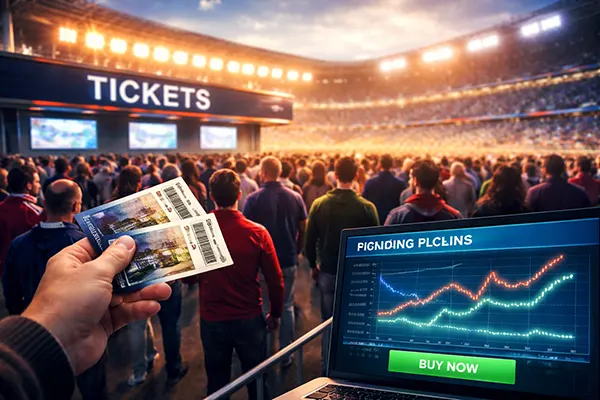
Ethics, Responsible Play and Marketing in Sports and Gambling
The intersection of sports and gambling industries has become a focal point for ethical debates in 2025. Both sectors thrive on passion, engagement, and audience trust — but they also face scrutiny regarding transparency, responsibility, and the potential for harm. Understanding how ethical marketing and responsible play practices align in both industries helps shape a safer and more sustainable entertainment environment.
Responsible Marketing and Ethical Standards in Sports
Modern sports organisations are embracing sustainability, inclusion, and transparency as integral values in their marketing strategies. From football clubs to global sponsors, ethical branding now focuses on community well-being, equality, and fair communication. Campaigns are designed not just to promote a product or team, but to inspire social engagement and environmental responsibility.
Transparency has become a key differentiator. Fans demand to know who sponsors their favourite teams, where their merchandise is produced, and how profits are reinvested. Ethical sports marketing therefore extends beyond messaging — it becomes part of a broader commitment to social good and sustainable business practices.
Responsible communication principles are also gaining popularity among gambling review resources that emphasise fair play and awareness. For instance, https://777-online-casino.org/ highlights how gambling services can maintain transparency and promote responsible gaming practices while supporting user protection and informed decision-making.
What Gambling Can Learn from Sports Marketing Ethics
The gambling industry can adapt several ethical principles from sports marketing. Firstly, clear communication and transparency about terms, conditions, and risks can enhance user trust. Just as sports organisations disclose sponsorship details, gambling operators should clearly communicate bonus policies, withdrawal limits, and data protection practices.
Secondly, promoting inclusion and equality within gambling marketing means representing players from various backgrounds without reinforcing stereotypes or unhealthy behaviours. Responsible marketing should never target vulnerable individuals or minors — instead, it should emphasise entertainment, control, and awareness.
Finally, adopting community-oriented strategies can transform how casinos and betting services are perceived. Supporting local initiatives, promoting responsible play education, and partnering with mental health organisations create a positive social footprint comparable to modern sports campaigns.

Responsible Gambling Communication and Player Protection
Leading gambling companies in 2025 continue to implement advanced responsible gaming systems. These include deposit and time limits, self-exclusion tools, and AI-based monitoring to identify risky behaviour. Transparency remains central: players must be clearly informed about game odds, potential losses, and the importance of self-control.
Responsible gambling communication is not just a legal requirement — it is a moral obligation. Information campaigns now highlight both the entertainment and potential risks of gambling, encouraging users to play for fun, not profit. Many brands integrate responsible gaming reminders directly into advertising and in-app notifications.
Furthermore, collaborations with regulators and independent organisations ensure accountability. Joint initiatives like player protection certifications or awareness weeks help reinforce a culture of care, showing that ethical gambling is compatible with commercial success.
Building a Shared Future for Sports and Gambling Ethics
Both industries are moving toward shared ethical frameworks. The sports sector’s commitment to inclusion and sustainability mirrors gambling’s growing focus on responsible play and data protection. Their convergence is evident in sponsorship agreements that now include clauses promoting responsible gambling messaging at events.
In 2025, sports and gambling are redefining what “responsibility” means. It is no longer a compliance checkbox, but a brand identity. Consumers increasingly support organisations that take ethical actions seriously and align with social values rather than short-term profits.
Ultimately, the fusion of sports ethics and gambling responsibility creates a blueprint for the future of entertainment — one grounded in transparency, fairness, and respect for the individual.
Last posts
-
 Communicating Ticket Prices and Rules: How...
Communicating Ticket Prices and Rules: How...
Clear communication about ticket prices and conditions is …
-
 Dynamic ticket pricing without losing fan ...
Dynamic ticket pricing without losing fan ...
Dynamic pricing is now common across sport and …
-
 Creator Partnership Economics in Sport: Ho...
Creator Partnership Economics in Sport: Ho...
Creator partnerships have become a core line item …
